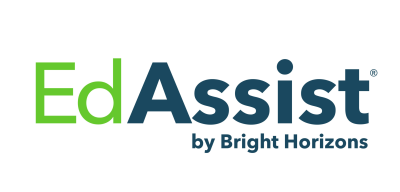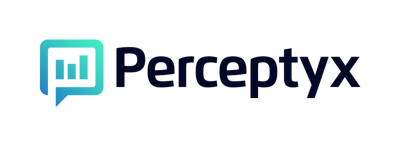
We caught up with one of our speakers, Roby Hunt, Vice President, Human Resources, MedStar Medical Group, to discuss his challenges at work, like engaging and retaining employees and training physicians on management skills, and what he is looking forward to learning at HR Healthcare.
Tell us a little about your role and MedStar as an organization.
Roby: MedStar is a fully integrated healthcare system with 10 medical centers across D.C and in the state of Maryland. We employ 30,000 associates, 3,500 clinicians, and over 2,000 physicians in about 280 sites across Maryland, D.C., and northern Virginia. In many cases we’re either number one or number two market share in most of Maryland, depending on the specialty.
I’m primarily the head of HR for one of the largest medical groups in the county. We have the full spectrum of HR and physician recruiting for MedStar Health, so my official title is VP of HR for MedStar Medical Group.

Can you give us an idea of what you're focused on currently? What's front of mind for you?
Roby: I’m also the VP of HR at the national rehabilitation network hospital in D.C, so it’s a lot. I spend about half my time in the in-patient world and the other half on the out-patient world. So, top of mind – talent acquisition and talent management, like everybody in healthcare. Being able to attract, engage, and retain healthcare talent is top of mind because I came to MedStar as the head of HR for the medical group on the physician side.
We’re making sure that we have the physicians and the mid-level nurse practitioners and PAs and CRNAs that we need across the system. That’s where we’re making sure that we can attract them, recruit them, and retain them.
Compensation is really starting to get top of mind in addition to the attraction piece, because the talent pool is shrinking, and we're starting to see wage pressures.
“In our world, there are different ways to use benefits and it does vary by specialty. It’s slightly different for physicians; they’re really worried about two things - wages and their student loan debt. ”

In addition to wages, are you thinking of more comprehensive benefits and rewards?
Roby: In our world, there are different ways to use benefits and it does vary by specialty. It’s slightly different for physicians; they’re really worried about two things - wages and their student loan debt. Their wellness and burnout is becoming a big deal on the physician side probably more so than other health care professionals.
It’s a big deal – we’re asking ourselves what else we can be doing to address some of those concerns around student debt and mindfulness to try to avoid burnouts. That's for everybody, not just the physician group.
Salary pressures are just starting to hit us, too, meaning people are paying close attention to a dollar an hour more. They want to move on to another organization to pick up another dollar+ an hour. I do believe that the newer workers are paying a little closer attention.

So, thinking a little bit about the panel that you will be joining on at HR Healthcare regarding the next generation, how are you attracting the right people? Why is it important to get the right people?
Roby: I think that most people (physicians, associate staff, and nurses) value their relationship with their manager, their leader. And while they like to have a leader at the top of the organization that they can trust and look up to, the greatest relationship is with that frontline manager. So being able to either attract or develop those front line managers is really important to us and we look at it from a technical competence.
When we say technical, we’re not talking about the clinical competence, but more -- how the operations run on a day-to-day basis and being technically proficient to make the operations run. This is in addition to how they are behaving and how they engage their staff as leaders to help them understand their value to the organization. This is typically more difficult for the physician leader than it is for the others because they have had less of that engagement, less of that training than perhaps other healthcare workers.

What are you doing specifically to make sure that they all develop these management skills?
Roby: Right now, we have a pretty robust program of basic management skills as well as some leadership skills training. All of our front line supervisors up to executives get about six days of training, initially in the areas of supervision and leadership.
We have a little academy that we're doing for all of them and then for our upcoming and high potential leaders – it’s two years in length. We partner with Wharton and some other groups and put them through a more exhaustive program. On the physician side we have carried the high potential training leadership development that we're doing with Wharton to our physician leaders - we're up to 50 now.
Currently, we’re in the process of developing an institute of sorts. These are management development classes for our front line physician leaders that we're rolling out this next year that addresses day-to-day, tactical management around operations and patient experience.
We're also embedding some basic management principles, and a little bit more advanced leadership principles because some of these folks probably have never done any basic leadership.
This will be for our core front line leaders, around 200 of them. It’s about 75% operations management for our physicians and about 25% leadership development.
A lot of organizations are in the same boat as you – implementing programs like this to tackle leadership development, particularly with physicians. Why is this front of mind for everyone?
Roby: Physicians have always been in the focus group because leadership development is obviously something that a lot of other kinds of groups have already embraced, in part because of the changing industry and model of patient satisfaction over the past decade.
We began a real structured integrated system with a strong out-patient strategy about five years ago at MedStar. Since then, we've been building this medical group that has leadership at the top that's run by physicians for physicians and then starting to embed some of the same tactics that the hospitals have been doing with their other health care provider or other health care workers.
It’s become so important because the shift has happened on payer side and how people are being reimbursed, and at the same time our physicians are not yet engaged. They are upset by the change. They don’t want to be employed by a system - they want to be independent and do things the way they have always done. How you communicate with them and how they communicate with their front line has changed significantly in the past 10 years or so.
“It’s lost revenue and that's where we're struggling at the moment. So we're trying to come up with a hybrid approach where they can give a little bit of their own personal time, but make it engaging enough to where they were be willing to give up some of their own time.”
Anything else in terms of getting executive buy-in for these things or any other kind of obstacles that you're seeing?
Roby: The obstacle that we're finding is that the executive buy-in is more than verbal. My executive is the president of the medical group and one of the senior leaders of the organization. He's very supportive with the time it takes to provide the training that's needed, because these physicians are a little bit different than other health care workers. These physicians are your rain markers. They’re bringing revenue in by having procedures and having patient visits. So, every day they are gone is a loss on the revenue side, so it’s not just the cost of them sitting in a room like it would be for a nurse or a nurse manager.
It’s lost revenue and that's where we're struggling at the moment. So we're trying to come up with a hybrid approach where they can give a little bit of their own personal time, but make it engaging enough to where they were be willing to give up some of their own time.
We have the rest of the buy-in support -- spending the money on developing the programs, the time on developing the programs…it’s going to be the time away from the practice that we're challenged with.
“I love my job. I love the people I work with and work for. But it is a challenge and it’s nice to know that other people have similar challenges and are battling some of those challenges.”
What was your experience like last year at HR Healthcare? What were the benefits in attending a peer-led forum, especially in healthcare HR?
Roby: The number one benefit is making connections that I haven’t made before. I’ve been able to reach out and ask for additional information besides that which I received there. I created a good amount of connections that I hadn’t had before. I’m looking forward to doing that again and making those connections stronger, as well as make new connections.
Since it’s primarily peer-based, VP, CHRO level, the people are very smart with a lot of great healthcare backgrounds. I’ve actually recommended it to our new CHRO who doesn’t have a health care background. She's been here a year now -- but she comes from outside of health care. I find these connections would be really important for her.
There are a few nuggets that I picked up on that I took back and shared and tried to implement, and some other ideas as we go forward I’m keeping in the back of my mind. It’s great to find out what others are doing again at a more executive level. You get confirmation that you're not alone with some of the struggles that you are having.
And that's always a good thing you know. I love my job. I love the people I work with and work for. But it is a challenge and it’s nice to know that other people have similar challenges and are battling some of those challenges.
“The HR Healthcare conference is actually the first HR group I’ve probably participated in 10 years. ”
What in particular are you looking to learn about or discuss with your peers?
Roby: I’m looking to continue to develop my skill set around physician leadership development, around physician engagement. I am also interested a little bit on the talent acquisition side especially on the nurse side because I have a in-patient responsibility now and we've got some issues going on. And we're struggling a little bit on our nurse recruitment and what others are seeing there in retention.
The HR Healthcare conference is actually the first HR group I’ve probably participated in 10 years. I’ve been outside. I’ve been networking in HR group for about 10 years that mostly come from other industries that are kind of cross industry senior level HR – and I’ve done it for so long that for the longest time I just went to other non-health care specific events. HR Healthcare is a great way to reconnect with folks and connect with my peers and see what other people are doing.
Employee engagement and management training are hot topics at this year’s HR Healthcare conference. Check out all of the details by downloading our full agenda











